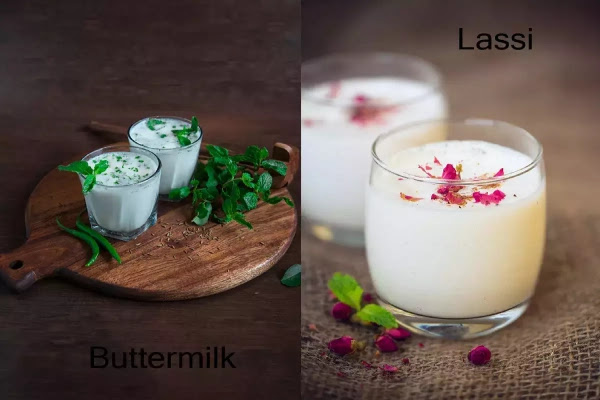Featured
- Get link
- X
- Other Apps
Organic Beauty, Fashion, and Technology

The organic movement has gained significant traction across
various industries in an era marked by growing environmental awareness and a
focus on personal health. This article explores the harmonious relationship
between organic beauty, fashion, and technology, emphasizing their commitment
to health and sustainability. By incorporating organic materials, sustainable
practices, and innovative technologies, the intersection of these fields
fosters a holistic approach to well-being while reducing environmental impact.
From organic skincare and natural fibers to eco-conscious manufacturing
processes and digital advancements, the organic movement is reshaping the
beauty and fashion sectors with a technology-driven focus on health and
sustainability.
Organic Beauty: Embracing Nature's Remedies
Organic beauty products prioritize natural and plant-based
ingredients, avoiding synthetic chemicals and harsh additives. Using organic
and sustainably sourced botanical extracts, essential oils, and herbal remedies
in skincare, haircare, and makeup promotes skin health and minimizes potential
allergies or adverse reactions. Organic beautybeaalso encompasses eco-friendly
packaging made from recyclable or biodegradable materials, reducing waste and
pollution. Furthermore, technology plays a crucial role in organic beauty
through digital platforms that educate consumers about organic ingredients,
facilitate product discovery, and connect with sustainable beauty brands.
Organic Fashion: Sustainable Style Statements
Organic fashion revolves around using organic fibers, such
as organic cotton, hemp, linen, and bamboo, grown without harmful pesticides or
synthetic fertilizers. These fibers provide a sustainable alternative to
conventional textiles, reducing the fashion industry's environmental impact.
Organic fashion emphasizes fair trade practices, ethical sourcing, and
transparent supply chains to ensure social responsibility. Technology
contributes to organic style by enabling traceability, supply chain
transparency, and the utilization of innovative eco-friendly materials. Digital
platforms and apps allow consumers to discover and support organic fashion
brands, promoting sustainable choices in their style statements.
Technology-Driven Sustainability: Innovations for Health and Organic Living
Technology plays a pivotal role in driving sustainability in
organic beauty and fashion. Advancements in digital platforms, mobile apps, and
e-commerce enable consumers to access information about organic products,
connect with sustainable brands, and make informed purchasing decisions.
Additionally, technology allows the development of innovative solutions such as
fabric recycling processes, water-saving dyeing techniques, and
energy-efficient manufacturing practices, reducing the ecological footprint of
the fashion industry. Wearable technology also contributes to health and
organic living by monitoring vital signs, sleep patterns, and physical
activity, encouraging a holistic approach to well-being.
Health Benefits of Organic Living
Organic beauty and fashion go hand in hand with the pursuit
of personal health. Organic skincare products, free from harmful chemicals,
promote healthier skin by nourishing and rejuvenating it naturally—organic
fabrics in fashion offer breathability, hypoallergenic properties, and reduced
exposure to potentially toxic substances. By embracing organic living,
individuals can reduce their exposure to harmful toxins and potentially improve
their overall well-being. Technology further enhances health through wearable
devices, health-tracking apps, and personalized recommendations, empowering
individuals to make informed choices and monitor their well-being.
Organic Certification and Consumer Awareness
Certification standards, such as USDA Organic and GOTS
(Global Organic Textile Standard), play a significant role in verifying the
authenticity and integrity of organic beauty and fashion products. These
certifications provide transparency and assurance to consumers, ensuring that
products meet strict organic standards. The growing consumer request for
organic products and increased awareness of environmental and health concerns
have driven the popularity of organic beauty and fashion. Through education,
marketing campaigns, and collaborations, industry stakeholders can raise
consumer awareness about the benefits of organic living and the importance of
supporting organic brands.
Conclusion
The amalgamation of organic beauty, fashion, and technology
highlights the transformative power of sustainable and health-conscious
practices. The organic movement brings a paradigm shift in the beauty and
fashion industries, prioritizing natural ingredients, sustainable materials,
and eco-friendly manufacturing processes. Technology is an enabler, empowering
consumers to make informed choices, fostering transparency in supply chains,
and supporting innovations promoting health and sustainability. By embracing
organic principles and leveraging technological advancements, the beauty and
fashion sectors can create a harmonious ecosystem that nurtures both personal
well-being and the health of our planet.
- Get link
- X
- Other Apps
Popular Posts
Refreshing Cold Soup Steps To Chill On Hot Summer Days
- Get link
- X
- Other Apps

